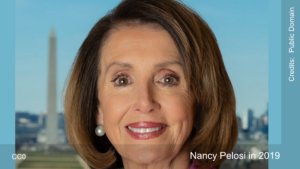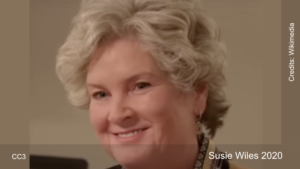JD Vance, the Republican vice-presidential nominee, once again avoided directly confirming the legitimacy of the 2020 presidential election results, continuing to echo concerns raised by his running mate, Donald Trump, about widespread fraud and irregularities. During an interview with Lulu Garcia-Navarro, Vance refrained from affirming that President Joe Biden won the election fairly, opting instead to focus on the larger issue of election integrity.
Key Takeaways:
- Election Fraud Concerns: Vance avoids confirming Biden’s win, reflecting the ongoing skepticism about 2020 election fraud and irregularities that many Republican voters continue to raise.
- Censorship Focus: He highlights Big Tech’s role in censoring stories, such as those involving Hunter Biden, which Vance suggests may have altered the election’s outcome in favor of Biden.
- Court Rejections: Vance downplays the importance of courts dismissing Trump’s fraud claims, framing them as part of a larger battle for election integrity.
- Voter Appeal: His stance may solidify support among Trump’s base while presenting challenges in appealing to moderates and independents who prioritize election security.
In a newly released podcast episode, Vance was asked five times to clarify his stance on Trump’s claims of election fraud, which have sparked ongoing controversy. While some media outlets have dismissed these claims, many voters remain skeptical about the integrity of the 2020 election. Vance’s responses reflected his belief that it’s time to focus on future challenges, while also addressing concerns about how censorship and media manipulation may have shaped the election outcome.
Vance emphasized that Big Tech’s role in limiting certain news stories—most notably those involving Hunter Biden—was a significant factor in the election. He pointed to reports that social media platforms suppressed information that could have negatively impacted Biden’s campaign, suggesting this interference may have cost Trump crucial votes.
When Garcia-Navarro pressed Vance about the courts’ rejection of Trump’s fraud claims, Vance downplayed the significance of the judicial outcomes. He remarked that dismissals in court do not erase the valid concerns raised by millions of Americans regarding the fairness of the election process. He framed these legal challenges as important battles in a larger fight for transparency, rather than simple defeats.
Vance’s alignment with Trump on election integrity issues resonates strongly with Republican voters who continue to question the results of the 2020 election. His focus on media bias and election security, rather than dwelling on the past, allows him to connect with the growing number of Americans who see censorship and irregularities as major threats to democracy.
With the 2024 presidential race approaching, Vance’s refusal to fully endorse the 2020 election results reflects a broader tension within the Republican Party. Many GOP voters continue to demand greater scrutiny of election systems, while others in the party are eager to move forward. For Vance, navigating this balance between addressing past grievances and focusing on future priorities will be key as he courts both the Trump base and undecided voters.







Be First to Comment